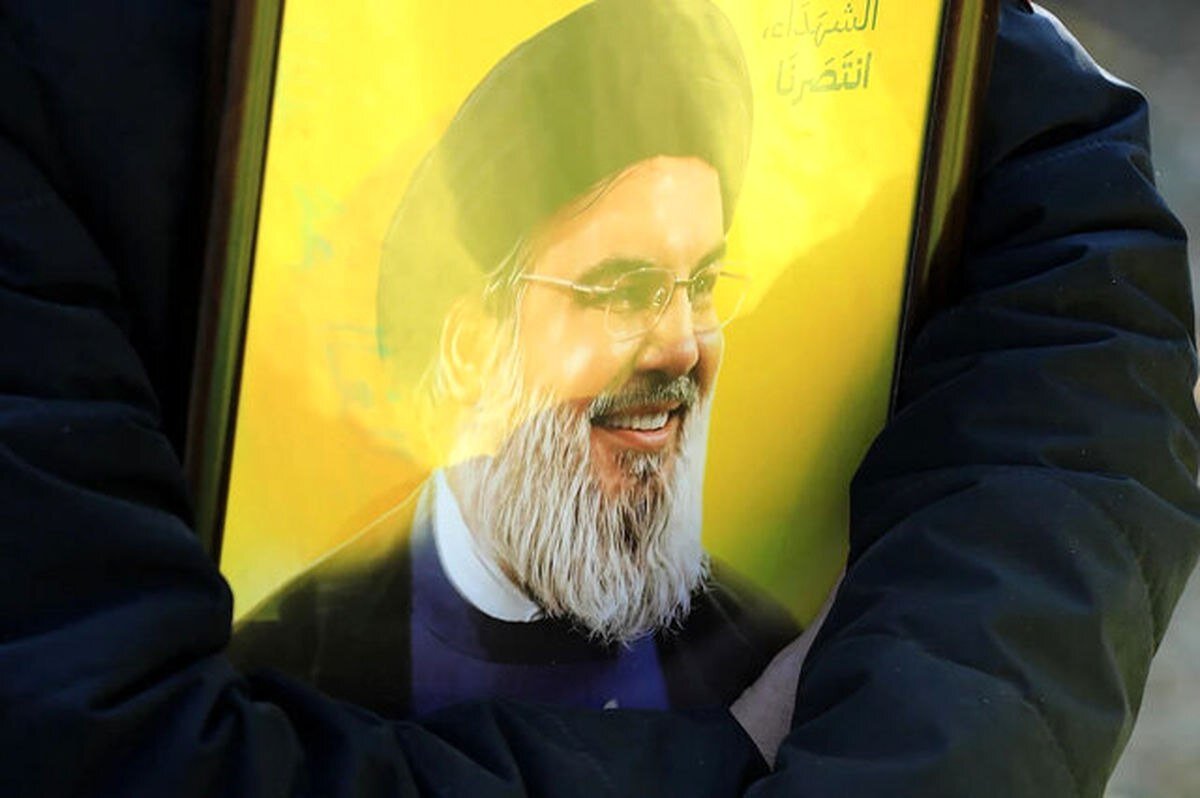Ya Sayyed, we’re here!
Despite new obstacles, countless Iranians travel to Beirut for Nasrallah’s funeral

TEHRAN – Tens of thousands of Iranians boarded planes on Thursday and Friday to attend the funeral ceremony of the late Hezbollah Leader Sayyad Hassan Nasrallah, despite new Israeli-influenced limitations that prevented them from flying directly to the Lebanese capital.
The Tehran Times was unable to determine the exact number of people who traveled to Lebanon over the Iranian weekend, as direct flights to Beirut were made unavailable earlier in the month. However, an official at Imam Khomeini International Airport stated that tens of thousands more travelers departed for the UAE, Iraq, or other neighboring countries in recent days compared to the same period last year.
Flights between Tehran and Beirut were officially suspended on February 13 after an Israeli military spokesman claimed they were being used to deliver supplies to Hezbollah. Lebanese authorities subsequently attributed the cancellations to European sanctions, but did not explain how these sanctions would apply to Lebanon in the first place. Iran says it is working to re-establish the flights.
Analysts believe that pressure from Israel and Washington is behind the flight suspension, with the likely objectives of limiting Iranian attendance at Nasrallah's funeral and isolating Lebanon from Iran.
Hossein Pak, an Iranian journalist who has covered developments in Lebanon for the past 16 months, closely followed events on the first night Iranian flights were canceled. The cancellation triggered days of protests around Rafic Hariri International Airport, with Lebanese citizens accusing their government of implementing Israeli policies. "This will not decouple the two nations; this gathering proves that," Pak wrote on X after speaking with protesters.
Mohammad, an Iranian teacher in his 40s, exemplifies this sentiment. He took time off to attend Nasrallah's funeral and experienced the effects of the flight restrictions firsthand. While awaiting his flight at Tehran's Imam Khomeini Airport in the early hours of Friday, Mohammad explained, "I have to go to Dubai and wait there for 13 hours before I can board a plane to Beirut. This is my first time traveling to Lebanon. Passengers here were telling me that direct flights used to take just 3.5 hours to reach the Lebanese capital."
Attending the Resistance leader's funeral was a matter of course for Mohammad and many others. "I know traveling to Beirut is more tiresome and challenging now, but I don't care," he stated. "After everything Nasrallah did for the region and the Muslim world, this is the least I can do for him."
High-ranking Iranian officials, including Foreign Minister Abbas Araghchi and Parliament Speaker Mohammad Bagher Ghalibaf, are also expected to attend the funeral, scheduled to begin just before noon on Sunday.
Simultaneously, memorial ceremonies will be held throughout Iran. Hojatoleslam Mohammad Mehdi Arab Ansari, an official with the Islamic Development Organization, announced that nationwide ceremonies and commemorations for Nasrallah would coincide with the funeral in Lebanon. The largest gatherings, organized by the IDO, will take place in Tehran, Mashhad, and Qom, with smaller cities and even villages holding their own private events.
"In memory of the martyrs of the Resistance, olive trees will be planted in several locations,” the official added. Olive trees are a symbol of endurance and perseverance in Arabic literature.
Leave a Comment